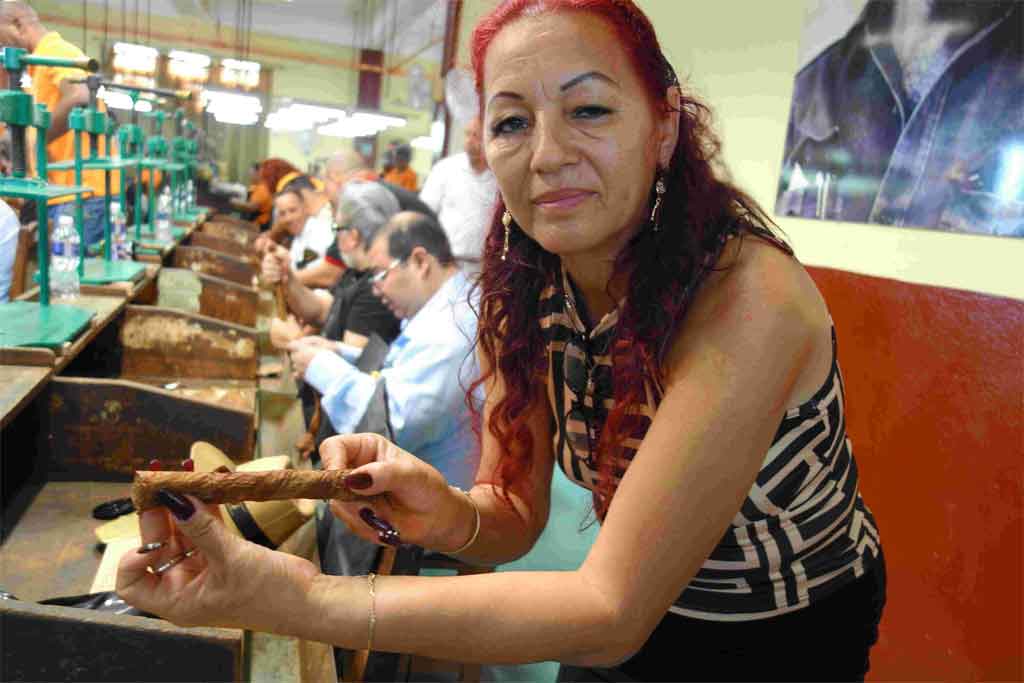It is a kind of mysterious epicenter, where the skill of many technicians and people who have been in this profession for years is alive.
That is the case of Belkis Fong, who came to this job when she was 17 years old and is now 57, who recognizes that the beginning was difficult, a time of learning and hard work, but satisfaction came later and now she considers her work as magical.
This criterion is shared by Odalys Lara, with 30 years of experience working as a Tobacco Shop Reader and responsible for public relations at a factory as significant as La Corona.
Both took part in the twisting master class for a group of the 2,900 participants in the Festival, from 108 countries.
In this 24th edition, the factories of La Corona, Partagás, H. Upmann and Carlos Baliño are visited, to learn first-hand what the Totally Handmade process of making a cigar is like.
As a novelty, attendees learned how to make their own cigar, guided by the factory’s expert rollers.
La Corona, originally known as the Iron House, has a rich history, when before its initial installation on Zulueta Street in 1904, the factory had changed location on several occasions.
It is currently located on 20 de Mayo Street and is one of the most functional factories in Cuba, which allows Habanos to be produced in the most optimal production conditions.
For its part, Partagás is one of the most recognized Habano factories in the world for its resulting famous quality. Partagás cigars are recognizable for their intense flavor and the character of their blend.
Another stage was H.Upmann, one of the most renowned. Its original building was located at 405 Amistad Street.
In 2003 this factory was moved to a modern facility on central 23rd Street, in Vedado, being currently located on Belascoaín Street, at the corner of Peñalver.
At the beginning of last century, it was in the majestic galleys of the old factory where the busy hands of experienced rollers produced the first vitolas of the H. Upmann brand.
And finally, the delegates visited the Carlos Baliño industry, where the new Romeo y Julieta factory is located in the municipality of Marianao, just over 10 kilometers from the center of Havana, a building rehabilitated from an old convent of the early 20th century. Appropriately, spokespersons of the Festival said that Cuba sells in more than 100 countries on all continents, where the island has 45 companies for these purposes (16 agricultural, eight agro-industrial, 10 for twisted tobacco, four of cigarettes and seven services and marketing.
In this nation there are 50 rolling factories for export, and the same number for national consumption, two other industries make cigars by machine, as well as cigarettes and wooden box factories for packaging.
Around 200 thousand people work in Cuban cigar factories, including many relatives of the producers.
Such data is updated annually, and depending on the difficulties and ways of solving problems, but what is certain is that it is an attractive, interesting industry with an almost mysterious axis in twisting factories.
ef/lam/rfc










